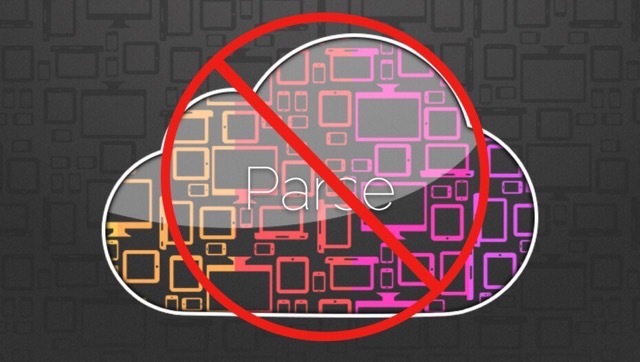Why didn't Facebook support Parse?

The closing of Parse was one of the unpleasant surprises of this year. At the time of its operation, Parse remained one of the most popular mBaaS services (mobile Backend-as-a-Service). Journalists of VentureBeat decided to analyze the reasons for the refusal of Facebook to continue supporting the platform for service users.
Strategic step?
')
In 2013, Facebook absorbed Parse, and then many have suggested that the IT giant is going to enter the market as a developer of a new application platform. At that time, Facebook shares were trading below the IPO level, traffic from desktop devices was falling, and the level of revenue from mobile devices remained in question.
The takeover of Parse could provide Facebook with access to the mobile market by providing developers with their own platform, which would become a key entry point into the social network. In turn, this would ensure the growth of the share of mobile device users on Facebook.
Now let's consider the Facebook sample of 2016 - the company is the leader in mobile advertising and its SDK tools have become one of the most popular in this segment. This means that the goals of Parse have actually outlived themselves in the promotion of Facebook in the mobile market. And that was exactly the purpose of the absorption of Parse, in fact, Facebook had never planned to host the developers' applications in its own hands - this was not the main goal, and Parse became an extra line on the list of expenses.
Weak support and development against competitors
Parse was one of the first mBaaS services on the market in 2013. For the active development of Facebook, it would take more than a couple of companies of a similar profile, to double the base of employees working on Parse, but the company decided not to.
All this against the backdrop of the explosive growth of the platforms Google, Apple, Amazon and Microsoft, which simply made Parse not very attractive for developers. As a result, Parse became irrelevant not only for Facebook, but also for the vast majority of developers, remaining a niche solution.
Difficult economy
Instead of closing Parse, would you continue to maintain the service? In fact, for Facebook, this approach is not profitable - the monetization of the service remained in question. At the initial stage, Parse was used to host 60,000 applications from approximately the same number of developers. At that time, the service planned to actively increase the audience and monetize just due to this. For large companies, Parse remained irrelevant - most of them used their own work to launch identical services. And small and medium businesses will never pay enough to recoup the costs of support for Parse, which called into question the potential receipt of at least some profit.
What lesson can be learned from closing Parse?
Developers should not rely on mBaaS - in this case, their projects become dependent on similar systems and decisions of their management. Especially when it comes to niche systems that can never guarantee uninterrupted operation over a long period of time.
But if one counts and uses one of the analogs, it is only from major players in the market of the WS, Google or Microsoft level. At a minimum, they will continue to support their decision for a sufficient amount of time to migrate to alternatives without serious consequences. By the way, this is true - even with the cessation of development of a certain direction, one can observe a long period of support, which is caused by the desire to maintain the loyalty of corporate customers. And in this case, startups can close at any time, even after being taken over by a large company that integrates these technologies into their work processes.
Source: https://habr.com/ru/post/298442/
All Articles